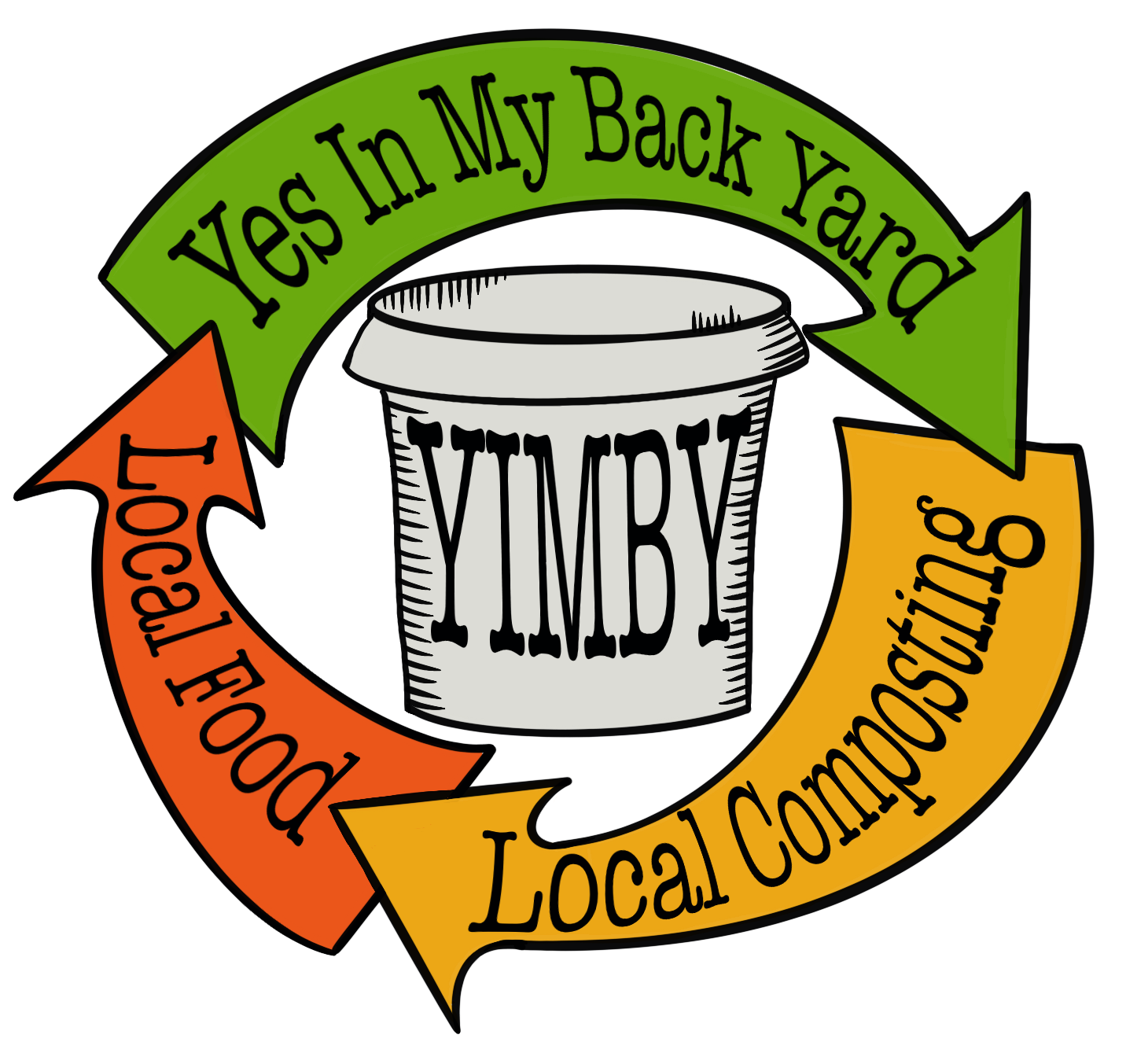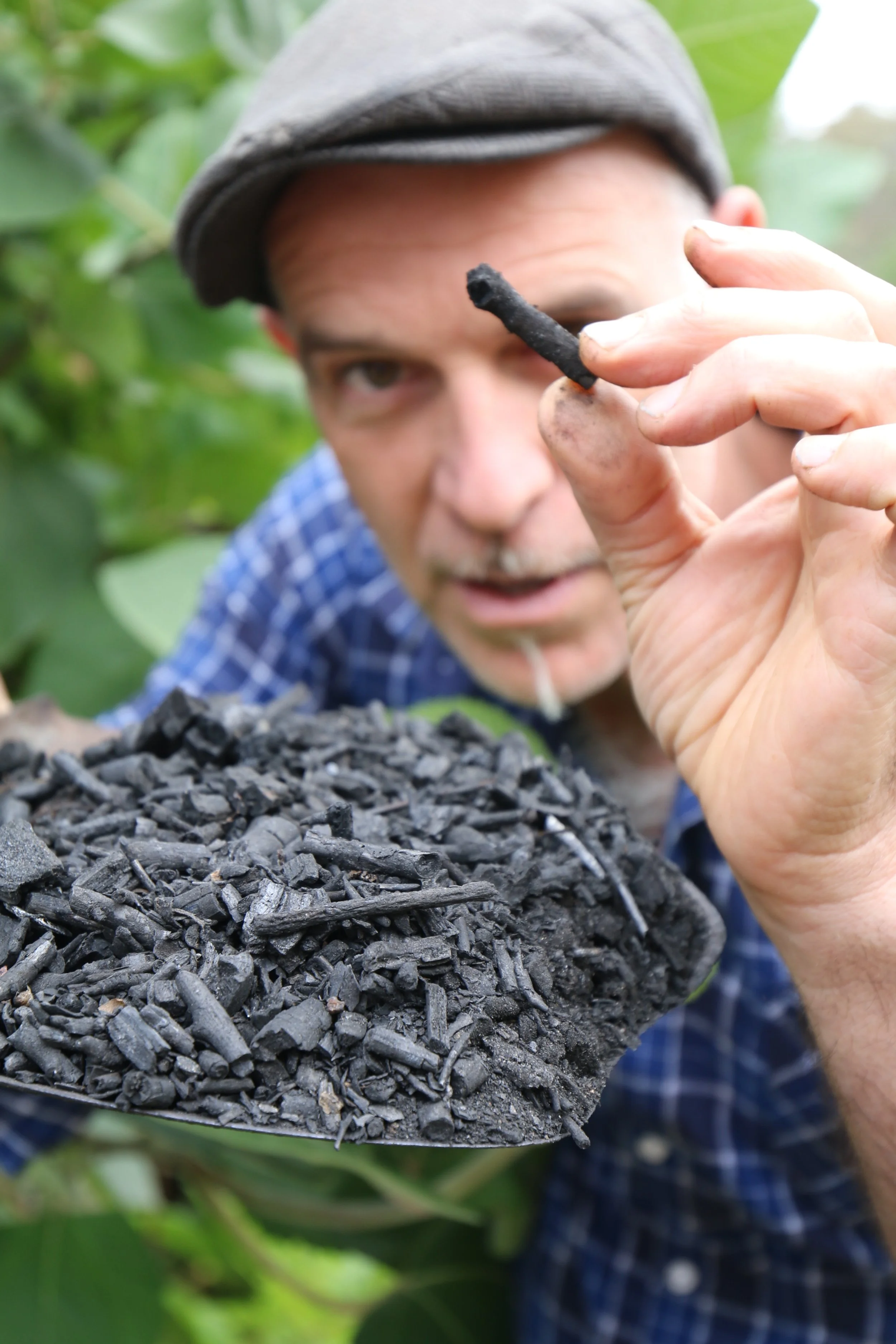Biocharging your compost
There is lots of interest, quite a bit of hype and some pretty optimistic hope pinned on Biochar and what it might be able to do to improve agricultural soil and yields while simultaneously drawing carbon out of the atmosphere for a very long time.
A clearer picture is starting to emerge about the best ways to make and use biochar with many trials and research done in the last decade or so. Let’s delve into this and see how we might use biochar as a compost ingredient. But first, what is biochar?
Biochar is charcoal made by burning woody materials, agricultural waste or any dried organic material (like manures) in a low oxygen environment. Biochar is intended for combining with soil to improve its water holding capacity, increase spaces for soil biology to thrive in and to lock carbon out of the atmosphere for a long time (hundreds or even thousands of years).
The best biochar making systems also capture the energy of the burn and use it to do something useful; from simple cooking to heating buildings or towns, reducing fossil fuel use at the source.
Even biochar evangelists agree that you don’t want to apply biochar straight to your soil, it will suck out water and soil biology and leave your soil temporarily depleted. It needs to be ‘charged’ with a rich biological inoculant before being added to the soil.
There are lots of simple or complicated ways to do this, but by far the simplest in most backyards is to add small amounts of biochar to your compost as you are layering with other compost ingredients.
If your compost is healthy, the biochar will get fully soaked in the biological wonderland of your compost and will make it into your soil as you apply your compost, win, win.
It’s hard to draw simple conclusions from the Biochar research due to; the many different ways biochar can be made, the different things it can be made from (feed stocks), the different temperatures it is made at, how and what it is charged with, how heavily it is applied and what the soil make up is.
Despite that, here is my go at a few conclusions: Biochar has greater benefits for sandy soils, then clay soils, and the least impact on rich loams. Biochar is alkaline, so it is best applied to acidic soils, and can be used as a substitute for lime. Soils that are low in organic carbon will also benefit more from biochar than those that are already rich in organic material. Biochar seems to have its greatest impact when applied in combination with other fertilisers (like rich compost!).
So, should you be adding biochar to your compost? You don’t need to, but if you can source it simply and cheaply, in moderation, it is unlikely to do your compost or your soil any harm. In fact it's likely to improve things from a little bit, to a lot, depending on how impoverished your soils were to start with. Best of all you could be locking carbon out of the atmosphere for centuries to come.
I add a layer of biochar in the bottom of the compost bin/caddy we keep in the kitchen. It kills odours and gets a pre-charging of biological goodness in the kitchen before it makes it to the compost pile.
Next week we’ll follow up with where to source biochar from and some simple ways you might be able to make it from woody garden wastes.
AUTHOR: JOEL MEADOWS
Joel Meadows works with Yes In My Back Yard, (YIMBY), a community-scale composting initiative in Castlemaine and surrounds. Send questions or comments to hello@yimbycompost.com
This was first published in the Midland Express on the 22 February 2024

